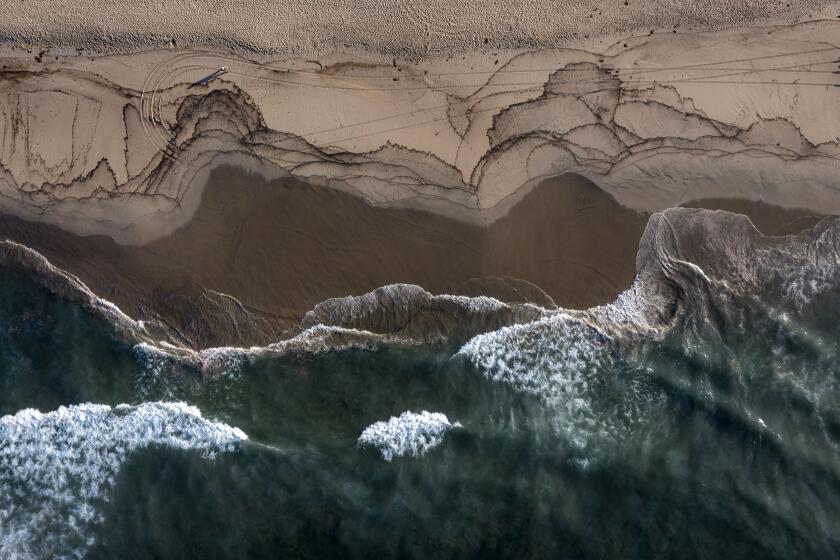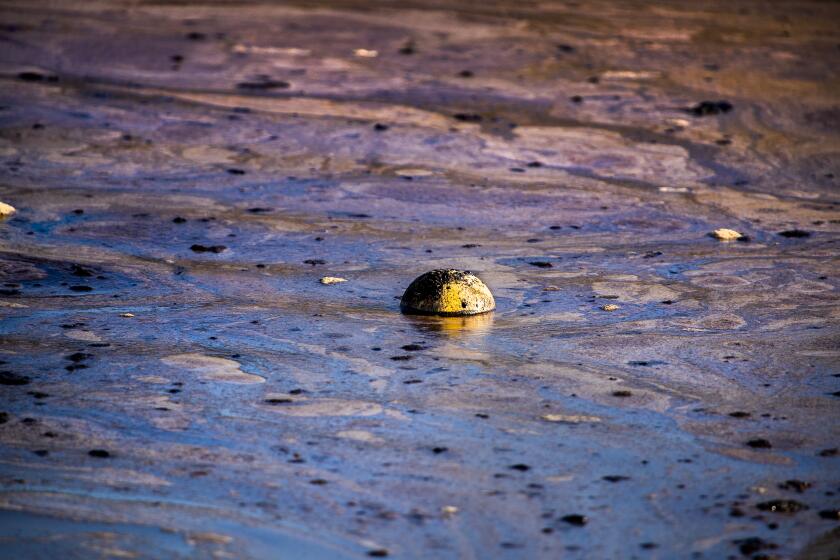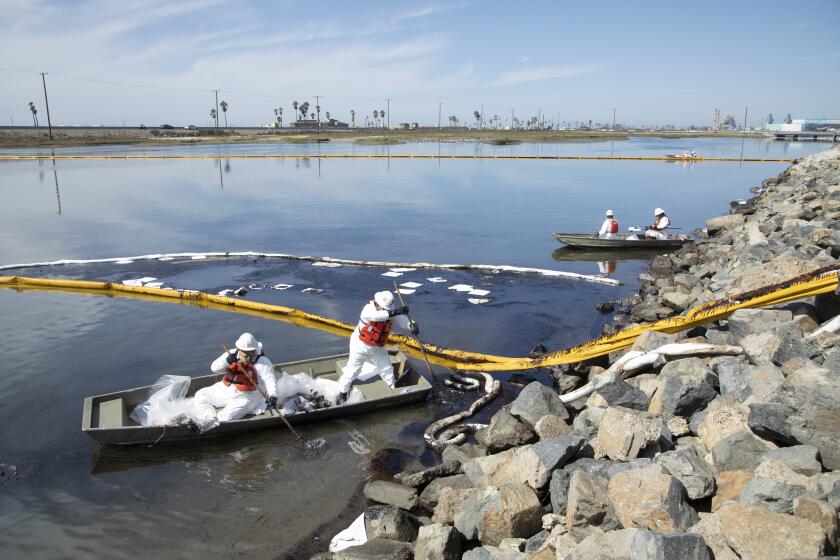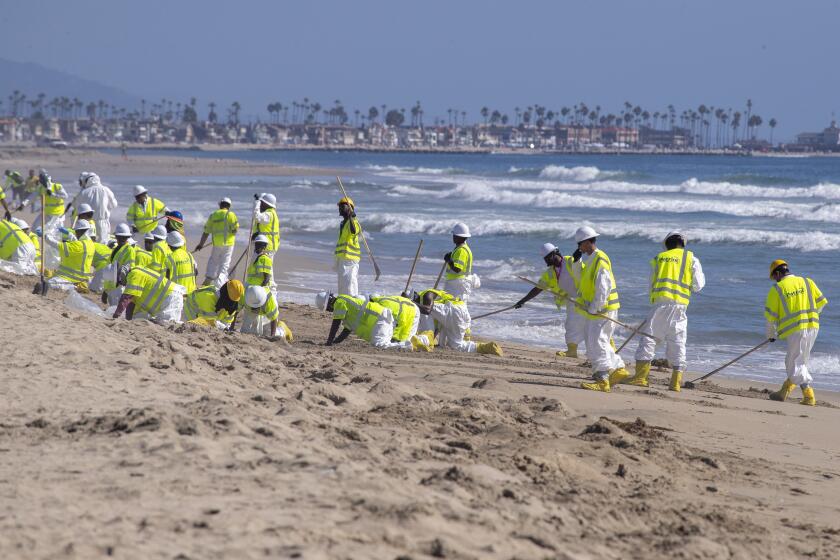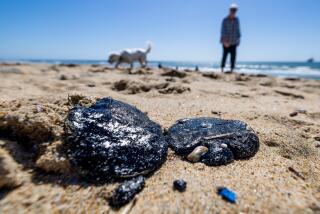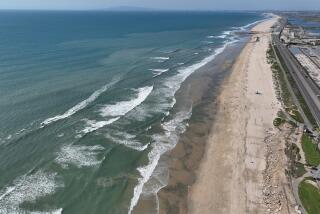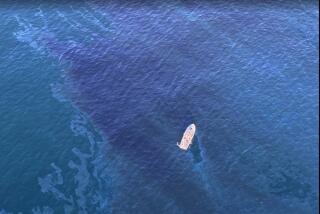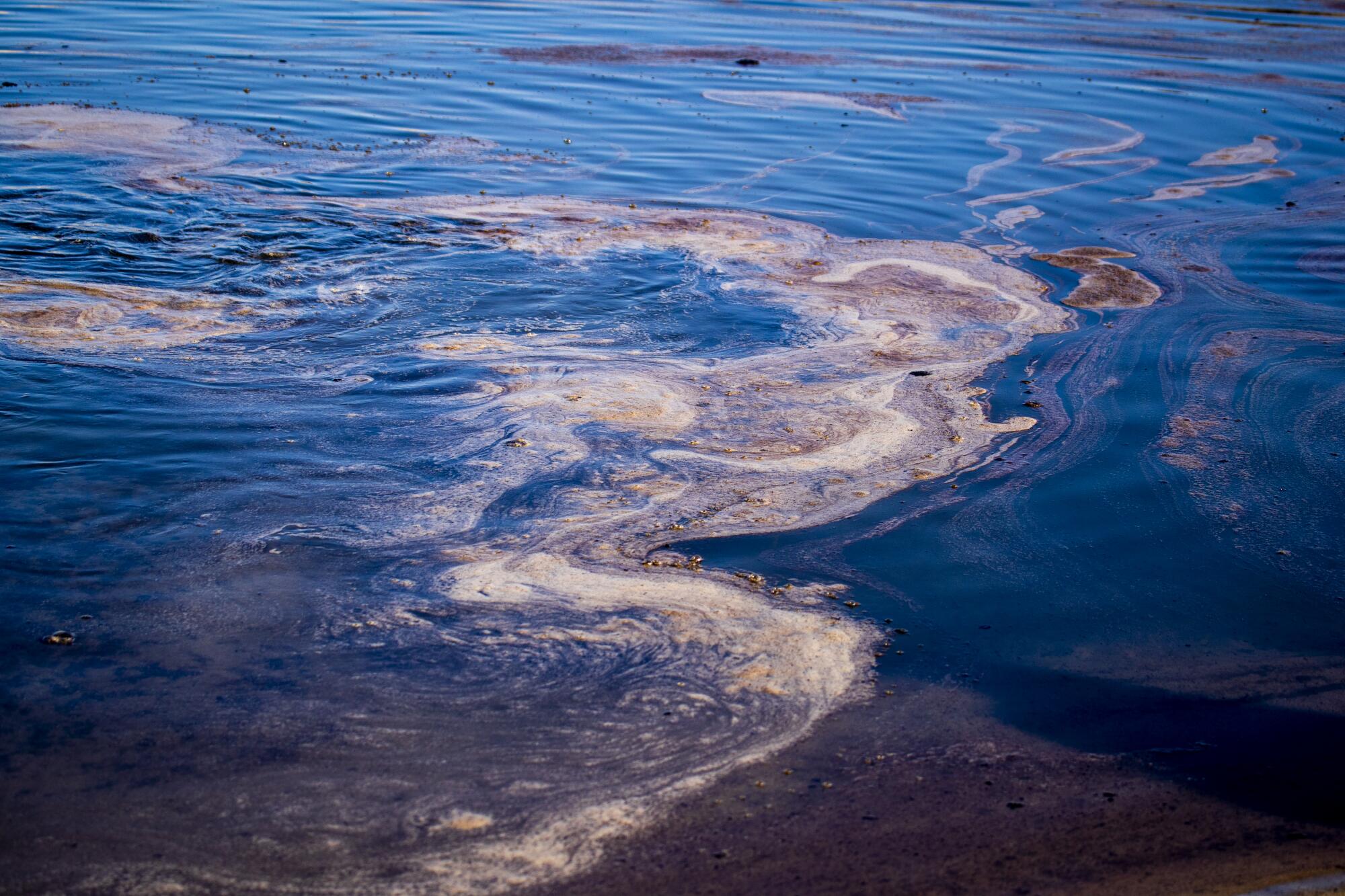
- Share via
There was growing alarm in Huntington Beach and beyond over the ecological toll of a 130,000-gallon oil spill that left local beaches and some wetlands soiled with crude.
The spill had reached the Talbert Marsh and some environmentally sensitive wetlands areas by Sunday morning. It will take time to know the extent of the damage but officials said some birds and fish have been found dead.
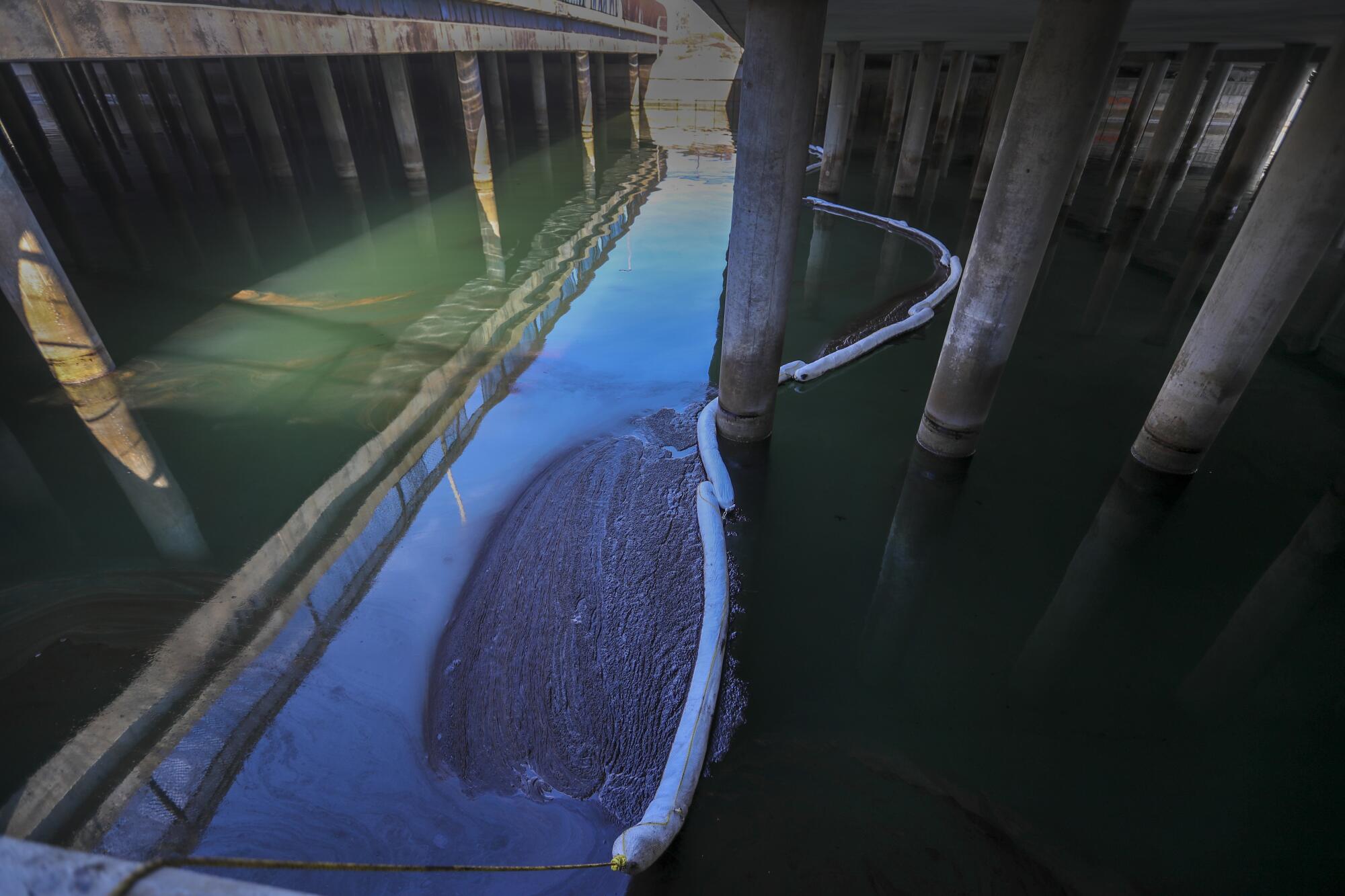
Huntington State Beach is home to a number of species of birds, including gulls, willet, long-billed dowitchers,
elegant terns and reddish egret, which are rare on the West Coast, according to Ben Smith, a biologist and environmental consultant for the county.
Smith drove to the beach Sunday morning to observe wildlife ahead of a construction project planned at the mouth of the Santa Ana River, which opens into the ocean at Huntington State Beach. He didn’t know that work had been canceled due to the spill.
RELATED: What caused the spill? What we know
“There’s tar everywhere,” he said, surveying the birds congregated on the north bank of the river. “You think by now we would have figured out how to keep this kind of thing from happening, but I guess not.”
An oil slick believed to have originated from a pipeline leak has hit Huntington Beach, closing a stretch of beach and raising grave wildlife and environmental concerns.
The spill could have a significant impact on the habitat, according to Smith.
“If the birds get into this tar it’s going to stick to their feathers and it’s going to be a problem for them,” he said. “It contaminated the water — it’s bad for the wildlife, bad for the water, bad for the people who use the water. It’s really unfortunate.”
“What we’re seeing here is the legacy of our addiction to fossil fuels — this is something that will keep happening unless we switch to clean energy,” said Jacqueline Savitz, chief policy officer for Oceana, a group working to protect the world’s oceans. “No matter how much you clean up a spill, there will always be oil that lingers for years and years.”
She especially worries about how oil will affect “innocent” animals and wildlife, including turtles, seals, sea lions, whales and dolphins who are surface breathers. “This will be in the air that they breathe, it will be soaked into their systems. Oil is basically a big soup of toxic chemicals and can shorten their life spans,” she said.
Orange County Supervisor Katrina Foley said a broken pipeline connected to an offshore oil platform called Elly caused the spill.
“Seabirds spot the oil sheen on the water and sometimes view that as an opportunity to dive right in for fish. That’s why we see oil-covered birds so often,” Savitz said. Society’s obsession with offshore drilling “keeps coming back to bite us.”
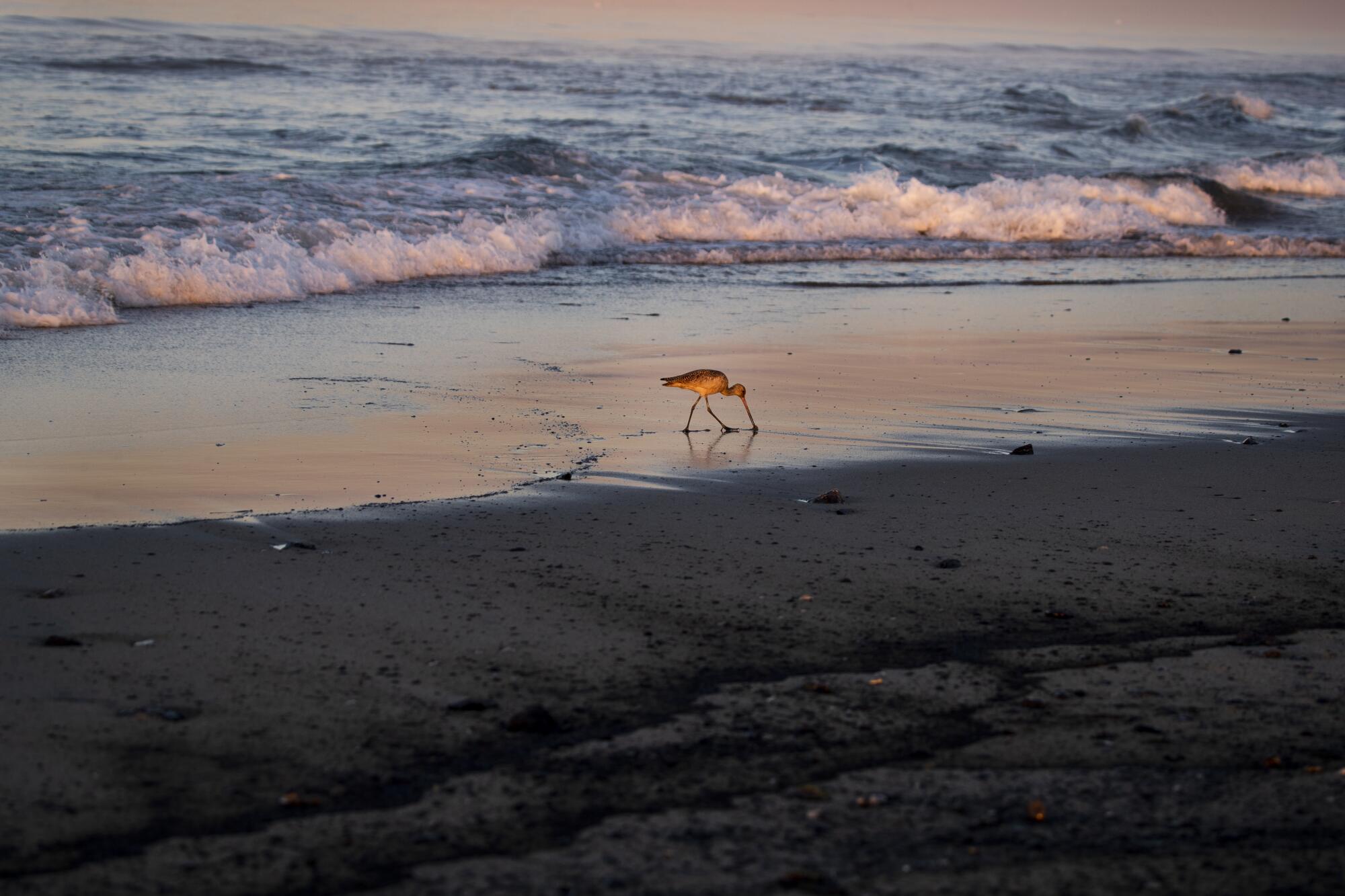
“Oil companies have created this mess and we allow it to develop,” Savitz said. “Oil combined with gas causes climate change — how many more reasons do we need to stop this practice? We fight against it and then this happens and we’re stuck — but maybe we can work to prevent the next one.”
TK Brimer, owner of the surf shop Frog House, which sits near the spill site, said he and his employees first smelled the oil around 6:30 p.m. Friday.
The oil had already killed or poisoned untold numbers of birds, fish and mammals, despoiling their habitat for perhaps years to come.
“Who’s using roofing material on a Friday night?” Brimer remembered asking his employees.
Brimer, who has owned his shop for more than 40 years, remembered the Huntington Beach oil spill in the 1980s. For months, he remained open, but no one in north Orange County wanted to surf.
He said BP officials came by local businesses promising them they’d be reimbursed for the financial impact of the spill. Brimer got a check five years later for $14,000, he said.
“The environmental impact lasted almost longer than waiting for that check,” he said.
Orange County Supervisor Katrina Foley, whose district includes Huntington Beach, said oil was continuing to spill from the damaged pipeline through the night, but divers were working to repair it early Sunday. She said Newport Beach Mayor Brad Avery told her that “he hit the oil slick in his boat ... heading back from Catalina. He saw dolphins swimming thru the oil.”
Out on the beach early Sunday, Foley said she watched as softball-sized clumps of oil washed up onto the sand.
“It’s a huge environmental impact and it’s an economic impact both in terms of the cleanup and shutting down a major tourist destination during a pandemic when we’ve all been struggling,” she said. “It’s a tragedy on all fronts.”
The oil spill off the Huntington Beach coast has prompted closures and safety advisories.
The good news, she said, is that technology has improved enough in recent years that officials can identify and mitigate the spread of the oil faster than in past spills. Floating barriers known as booms have been deployed to try to stop further incursion.
A massive oil spill off the Orange County coast has fouled beaches and killed birds and marine life
“We can get this cleaned up sooner and better than in prior oil spills, but that doesn’t mean it’s OK that this happened,” she said. “Someone has to be held accountable for how this happened.”
Still, many residents were stunned by the scene they woke up to Sunday morning.
“It’s terrible,” said Jon Ely, a 58-year-old Huntington Beach resident. “This stuff is not going to come up. It’s goo, and it’s thick.”
More to Read
Sign up for Essential California
The most important California stories and recommendations in your inbox every morning.
You may occasionally receive promotional content from the Los Angeles Times.
